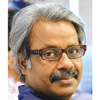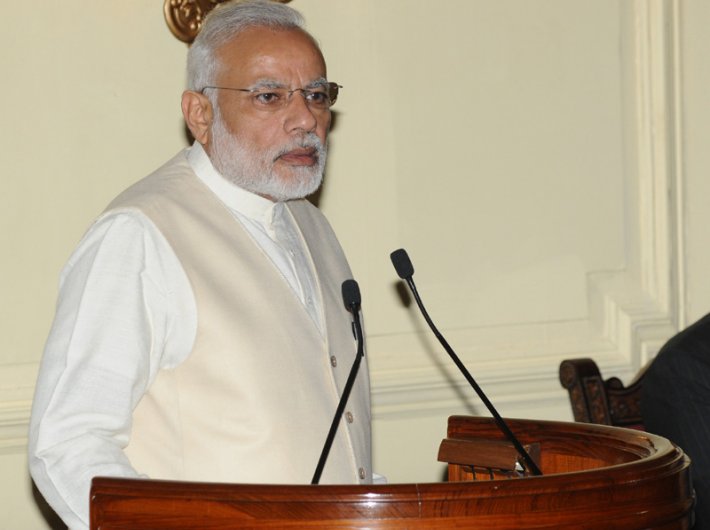Despite its shortcomings, demonetisation is expected to help the NDA in upcoming UP and Punjab elections
Concerned about the abuse of power, French sociologist David Émile Durkheim in 1912 wrote that there could be no society which, at regular intervals, did not feel the need to uphold and reaffirm the collective sentiments and the collective ideas that made up its unity and personality.
Opposition to corruption in India, especially after the 2011 Anna Hazare movement, gave birth to a moral awakening by means of reunions, assemblies and meetings, where individuals, feeling closely united to one another, reaffirmed their sentiments for the common man. This gave rise to a social construction of the common man’s identity – the ‘aam aadmi’, who, rather than being driven started driving the politics of the nation. The aam aadmi started participating in the making of politics, creating a complementary and parallel vote network and breaking the monopoly of the caste-religion-vote network.
The rise of AAP and BJP was a consequence of this newly constructed political course.
The ‘surgical strike’ announced by prime minister Narendra Modi on November 8, demonetising Rs 500 and Rs 1,000 notes, created a massive tremor in the market. With citizens as patients and the government as a healer, demonetisation pronounced the surgery of a social evil – black money and corruption. The political dividend gained by the government and retaliation by the opposition to the move revolves around gain and pain to the aam aadmi.
In the parliament session, the opposition spoke of the difficulties faced by common citizens standing in endless queues outside banks and ATMs to access their own money. Around 60 people reportedly died due to exhaustion and heart attacks caused while standing in long queues, and due to some hospitals refusing to accept the old currency for treatment.
In reality, for a common citizen, having to stand in queues to seek public benefits is an age-old practice. Except for a few government schemes, rarely are any public services delivered directly. But what made demonetisation a panic situation for citizens was the fear of losing their precious money.
The NDA government’s claim of conducting two surgeries, one at the border and the second with demonetisation, may have different effects on the two upcoming state elections of 2017. With demonetisation, two battlefields are to be won – Uttar Pradesh and Punjab. NDA’s goal in Punjab is to retain seats, while in Uttar Pradesh it is to attain the magic number to form the government. The surgeon is eyeing on the 403 seats in UP and 117 in Punjab. In both these states, it is the politics of corruption that can overturn caste and religious sentiments, currently working in favour of its political rivals – the Bahujan Samaj Party and the Samajwadi Party in Uttar Pradesh, and the Aam Aadmi Party in Punjab. While AAP is not expected to form the government in Punjab, it certainly has the potential to narrow opportunities for the Akali Dal-BJP and the Congress. Likewise, the BSP, under the leadership of Mayawati, has a potential edge over the Akhilesh Yadav government and the BJP. Undoubtedly, the BJP has now successfully generated a rise in nationalist sentiments through the two surgical strikes.
However, it is ultimately for the people and the economy to determine whether this surgical strike has affected the voter, either adversely or gainfully. In UP and Punjab, demonetisation will have a differential impact based on the type of economy and the size of population below the poverty line.
For the population below the poverty line, demonetisation’s impact is bound to be positive as it has created a sense of hope among BPL families that they can overcome their economic vulnerability now with this move. With 59.81 million BPL people living in Uttar Pradesh in comparison to Punjab’s 2.31 million, the inversely proportional poverty and corruption indices – a result of bad governance – is expected to give BJP more advantage in UP than in Punjab. In contrast, by the positional advantage of Punjab, the expectation is to gain sentiments with the surgical strike at the border.
Punjab is known as India’s bread basket while Uttar Pradesh is known for its vegetable produce. With high incidence of poverty, coupled with perishable farm items like vegetables, demonetisation has had direct negative impact on the rural economy, leading to lack of access or complete absence of cash. Ensuring BJP’s marginal electoral gain in UP and Punjab, however, demonetisation could be a substantive strike in squeezing the political space of the opposition.
Unlike a successful surgery, a surgical strike may leave incurable scars with prolonged illness. These scars could have been avoided if the government had reduced the timeframe between the surgery and the recovery. Some of the key elements overlooked in the surgery are compatible demonetisation, denomination size and quantum of currency. Secondly, there is a natural cycle of replenishment – the gap in demand-supply of cash with strict limit on cash withdrawal has affected the market negatively. All these could have been avoided if the government had followed the Indian tradition of Sushruta Samhita: “Anyone desirous of acquiring the knowledge and skills of anatomy should prepare a dead body and carefully, observe, by dissecting it, and examine its different parts.”
The sudden political implementation of the surgical strike to cure corruption, with limited examination of the system as a body, has resulted in a faulty surgery with grave injuries, giving rise to mixed results of pain and gain.

